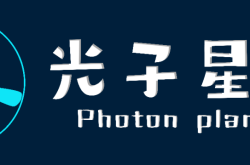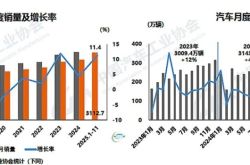"Small Huawei" in the private network industry suddenly faces a US court injunction, and its actual controller promises not to reduce its shareholding!
![]() 04/10 2024
04/10 2024
![]() 880
880
On April 8, Hytera announced that according to the order of the US court, it is prohibited from selling any product containing walkie-talkie technology anywhere in the world until further notice, and will be fined $1 million per day until the company fully complies with the injunction.
Currently, Hytera has withdrawn the lawsuit in Shenzhen, suspended the sale of two-way radio technology products as required, and has applied to the US court to withdraw the above injunction. It is currently undergoing continuous hearings in the US court.
Hytera will further take various countermeasures to strive to withdraw the above injunction in the shortest time.
When will the patent dispute end?
The incident originated from a relationship with Motorola.
In June 2022, Hytera sued Motorola in the Shenzhen Intermediate People's Court, alleging that its newly designed and developed H series products do not infringe on Motorola's trade secrets and copyrights.
After the case entered the trial stage, Motorola submitted a motion for an injunction to the US court, requesting Hytera to withdraw the lawsuit. The US court approved the motion on March 25, 2024.
In Motorola's eyes, Hytera is "making a fuss."
And this sudden injunction from the US court is precisely because Hytera failed to comply with the US court's request to withdraw and dismiss its lawsuit filed with the Shenzhen Intermediate People's Court in June 2022.
Speaking of the dispute between Hytera and Motorola, it can be considered an "old case."
In March 2017, Motorola and its subsidiaries sued Hytera US and Hytera Americas for infringement of trade secrets, alleging that some of the latter's products infringed on their trade secrets.
Motorola alleged that Hytera paid its former employees without notification to obtain thousands of confidential documents, namely two-way radio technology used by civil servants, construction workers, and school officials.
At the same time, during the trial, Motorola clearly stated that some of Hytera's products infringed on its 21 trade secrets and 4 US copyrights.
In February 2020, the US court jury rendered a first-instance verdict, sentencing Hytera to pay Motorola $345.7612 million in infringement damages and $418.8 million in punitive damages, totaling $764.5612 million, equivalent to approximately 5.334 billion yuan.
Of course, Hytera does not recognize such a verdict and has not "sat back and waited for death." Since then, the two have been fighting over this "patent case" until now.
The dispute between the two is not only overseas, but also domestically. Hytera has sued Motorola in Beijing, Guangzhou, and Shenzhen respectively.
Among them, in November 2017, Hytera sued Motorola on the grounds of "stopping the monopolistic behavior of abusing market dominance" and demanded compensation for losses of 60 million yuan and reasonable expenses of 500,000 yuan. This incident became the first shot in the domestic battle between the two.
"Small Huawei" in the private network industry
As a leading A-share communication company, Hytera is known as "Small Huawei" in the private network industry.
It continuously invests more than 14% of its annual revenue in research and development, and has established 8 research and development centers in China, Germany, Spain, and Canada. It is also one of the few companies in the world that can simultaneously provide a full range of products and solutions such as PDT, DMR, TETRA, MCS, etc.
In terms of cloud computing, since 2021, the company has focused on 5G industrial internet as a key development direction for broadband services, and launched a full-service solution of "cloud-pipe-end" for 5G+ industrial internet in the field of industrial internet.
At the same time, Hytera has joined hands with partners including cloud vendors and digital mid-platform vendors to jointly explore and develop IoT platform cloud and edge computing, and actively participate in building a 5G private network ecosystem.
For example, it signed a cooperation agreement with China Telecom's wholly-owned subsidiary China Telecom Smart Network Technology Co., Ltd., and the two parties jointly promoted cooperation in the areas of cloud network and 5G; and a 5G industrial internet solution "focusing on the industry, unified platform, and multiple businesses" in cooperation with China Unicom...
With such impressive achievements, in 2021, Hytera introduced Shenzhen Investment Holding Co., Ltd.'s subsidiary Shenzhen Investment Holding Win-Win Equity Investment Fund Partnership to invest and become the second-largest shareholder of Hytera.
Public information shows that in the first half of 2023, Hytera achieved revenue of 2.258 billion yuan, a year-on-year decrease of 7.39%; net profit attributable to shareholders of listed companies was 77.4048 million yuan, an increase of 608.12% year-on-year; and net profit after deducting non-recurring gains and losses turned from loss to profit, reaching 63.2458 million yuan, an increase of 492.25% year-on-year.
Among them, the professional wireless communication equipment manufacturing industry accounted for 79.65% of revenue, with a gross profit margin of 58.62%; overseas revenue was 1.041 billion yuan, accounting for 46.10% of revenue.
The company's overseas revenue accounts for nearly half. After all, among Hytera's many labels are "the world's second-largest radio terminal manufacturer" and "the leading exporter in the walkie-talkie field." Motorola is the global leader in the field of dedicated communications.
Obviously, the two are direct competitors in multiple markets at home and abroad. In a "scarce market with many competitors," disputes are inevitable.
Written at the end
Hytera, which is deeply involved in patent disputes, saw its share price plummet to the limit on opening. (I wonder how many people were "green" today.)
To stabilize the morale of its shareholders, Hytera's controlling shareholder and actual controller, Chen Qingzhou, voluntarily committed not to reduce his shareholding in the company within 6 months from today. As of now, Chen Qingzhou holds 713 million shares of Hytera, representing a shareholding ratio of 39.21%.
In fact, Hytera's dispute with Motorola is not limited to this one case.
In 2015, after Hytera won the Dutch public safety order, it was sued by a joint bidding group led by Motorola; in 2017, Motorola filed a patent infringement lawsuit against Hytera in Australia, alleging that the latter's digital mobile radio communication equipment infringed on its three patents, and subsequently the former filed a patent infringement lawsuit against the latter in Germany.
Whether it is due to political factors or misalignment at the legal level. Now, the patent case between the two parties that has lasted for 7 years has once again stirred up waves. How will Hytera respond this time?





